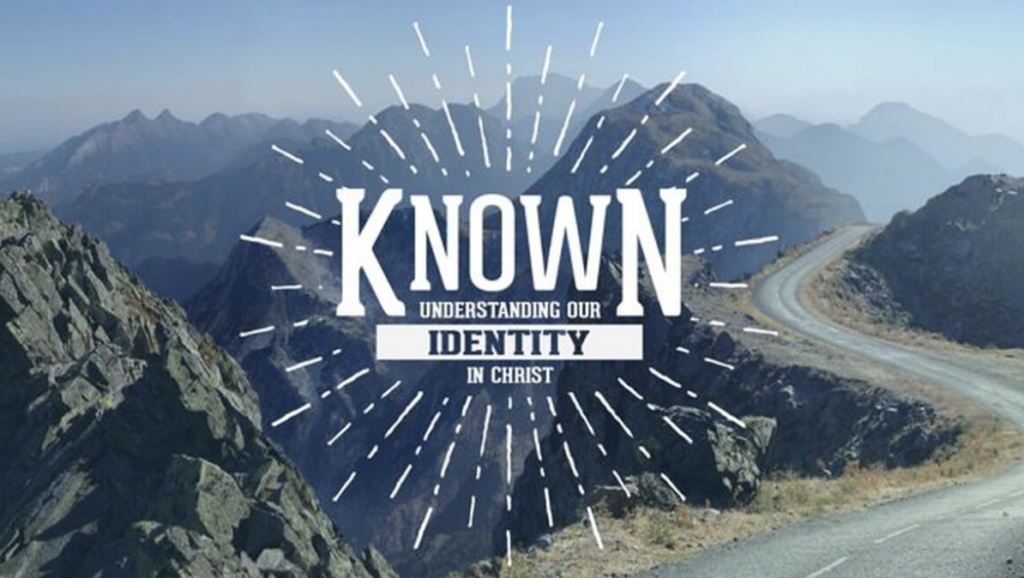My Identity In Christ – Part 1
“Yet to all who did receive Him, to those who believed in His name, He gave the right to become children of God” John 1:12 NIV
Turning Toward Our Identity in Christ
- As we learn to confront shame, we are given the opportunity to disengage its power. The removal of shame is both a process and a continual lifestyle. It is a choice we will be asked to make every day for the rest of our lives: Will I live my life based on the shame, fear, and the dysfunction in and around me? Or will I live my life on the basis of God’s grace, mercy, forgiveness, and unconditional love toward me?
- In Matthew 9:17 (NIV), Jesus explained a profound truth. He said, “And no one puts new wine into old wineskins. For the old skins would burst from the pressure, spilling the wine and ruining the skins. New wine is stored in new wineskins so that both are preserved.” The effect of sin and shame in our lives, and our own efforts to overcome it, may have caused us to “burst,” or to get to the end of ourselves. Even as Christians, we may have incorporated God’s principles into an overall unhealthy belief system – a system infected by sin and shame, self-righteousness and false humility. We may have thought if we could just add some good things to our messy lives, somehow everything would be all right. But it didn’t work.
- That’s because in the spirit-led, authentic Christian life, change must occur at a foundational (heart) level, where entire mentalities, coping mechanisms, and belief systems are brought into alignment with God’s truth. When this takes place, an entirely new world unfolds for us. The people and circumstances in our life may not change, but we are able to see them through an entirely different lens – the lens of God’s grace! As this process occurs, there is perhaps nothing as healing and restoring as being able to embrace our new identity.
 Who Am I, Really?
Who Am I, Really?
Identity simply is a perspective of how we see ourselves. We looked at this in great detail earlier in the book, but now I want us to personally wrestle with this question for ourselves: “Who am I, really?” When we were covered in layers of shame, our identity was concealed, damaged, or taken from us. We lived our lives based on lies – we believed what the people and experiences of our broken past had taught us. We believed that the measurements and standards of the world, and the approval of others who were just as human as we were, were the correct gauge of our self-worth and identity.
Here are some places where we may have tried to find our identity:
- Our family role. Within our family-of-origin, we functioned in a role that told us how to give and receive love, and how to see ourselves, others, and the world. If that family system was unhealthy or shaming, our sense of identity might have been based on outrageous lies, or it may have never been developed at all. We may have learned to take care of the needs of other family members, and in the process were never able to define our own personal needs, likes, preferences, goals, desires, beliefs, etc. Instead, we learned to adapt to whatever others needed or desired.
- Our relationships. We can become so enmeshed in our relationships that we feel unable to separate ourselves from a particular person. We might only feel secure when this person is around us, and continually focus on his or her needs and life issues. Because we don’t have healthy boundaries in place, we have difficulty knowing where we end and they begin. Our entire identity gets lost in this person. The word for this is “enmeshment,” as we discussed a few chapters earlier. We can also bring unhealthy people into our lives that continually criticize and put us down, and we learn to believe what they’re saying is true. In time, we become conditioned to view ourselves through that same filter.
- Our appearance or sexuality. We may have learned that our core value is in our physical appearance. We may have received validation when we outwardly made ourselves look good. We may have taken that to even more of an extreme and used our sexuality to gain power or attention from the opposite sex. Even in marriage we may continue to believe we are only as good as our appearance or sexuality. If our identity is wrapped tightly in how we look, a bad hair day can leave us feeling insecure and unworthy, and for some, we may be terrified of the changes that aging will bring. If we find our identity in our sexuality, our self-worth may plummet merely by failing to have an orgasm.
In my next posting I will continue discussing additional ways we try to define who we are.
———-
Soul health and spiritual maturity cannot be separated. Our counselors are ordained Christian ministers as well as certified and licensed Christian counselors. We are able to help you experience freedom from shame, anxiety, depression, or marriage / relationship conflict with methods that are purely Christ-centered. Please click on this link to learn much more about how our CHRISTIAN COUNSELING an help you become a more authentic follower of Christ, and help you find freedom from identity dependence.
Life Training offers convenient sessions at our office in Louisville, Kentucky, as well as online counseling via Zoom or FaceTime. Our non-profit counseling practice has an outstanding track record for over a decade helping men and women, individuals and couples who are ready to move beyond anxiety, depression, and conflicts in marriage or other relationships find hope and healing in their lives. Contact us today at 502-717-5433, or by email at drdave@lifetrainingcounseling.org

 Who Am I, Really?
Who Am I, Really?